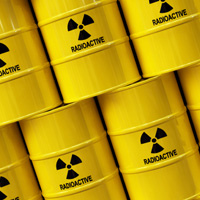-
Grants
14
-
Total Awarded
$5,941,000
-
Years
1993 - 2021
-
Categories
Grants
The Nautilus Institute (Nautilus) convenes scholars and practitioners who analyze strategies to solve interconnected global problems, including the threats of nuclear war, urban and energy insecurity, and climate change in the Asia-Pacific region. The award provides general operating support to Nautilus. Over the grant period Nautilus will pursue publication and engagement with experts and policymakers to reduce nuclear risk, with a focus on nuclear command and control systems.
The Nautilus Institute convenes scholars and practitioners who analyze strategies to solve interconnected global problems, including the threats of nuclear war, urban and energy insecurity, and climate change in the Asia-Pacific region. Through convening, publication, and policy engagement, this project supports an effort to build bridges between countries that possess nuclear weapons and those that do not. It does this by working on an area of common interest between both groups of countries—improving understanding about the personal accountability of individuals responsible for nuclear weapons operations, thereby reducing the likelihood of the use of nuclear weapons.
The Nautilus Institute convenes scholars and practitioners who conduct research on strategies to solve interconnected global problems, including the threats of nuclear war, urban and energy insecurity, and climate change in the Asia Pacific region. The project' goal is to chart a course for productive engagement toward a long-term solution on the Korean Peninsula that benefits all countries in the region (including South Korea, China, and Japan). To that end, the project aims to define an effective regional energy security strategy that embodies interdependence, resilience, and sustainability.
The Nautilus Institute convenes scholars and practitioners who conduct research on strategies to solve interconnected global problems, including the threats of nuclear war, urban and energy insecurity, and climate change in the Asia Pacific region. The project, titled Antidotes to Impact of Social Media on Risk of Nuclear War, addresses the risks that social media “storms” might interact with early warning systems of nuclear armed states in dangerous ways, and compound and increase the risk of war and possibly nuclear war. The goal is to instigate practical thinking and preliminary investigation into possible, realistic, and near-term antidotes to the impacts of false positives amplified by social media on the early warning perceptions of nuclear armed states.
The Nautilus Institute convenes scholars and practitioners who conduct analysis of strategies to solve interconnected global problems, including the threats of nuclear war, urban and energy insecurity, and climate change in the Asia Pacific region. With MacArthur support, Nautilus establishes an expert working group to draft an international nuclear command, control, and communications (NC3) code of conduct. The code is designed to decrease uncertainties and strengthen stability among the countries that possess nuclear weapons, whose NC3 systems currently operate independently from one another. In this way, the project aims to decrease the likelihood of a nuclear conflict.
The Nautilus Institute convenes scholars and practitioners who conduct research on strategies to solve interconnected global problems, including the threats of nuclear war, urban and energy insecurity, and climate change in the Asia Pacific region. This exploratory award aims to take advantage of the current debate on the modernization of the U.S. nuclear arsenal. In particular, the project will examine the U.S. command, control, and communications (NC3) infrastructure under-girding its nuclear enterprise. The intended outcome of this award is an understanding of the relationship between NC3 improvements and the future structure of the U.S. nuclear arsenal.
The Nautilus Institute convenes a community of scholars and practitioners who conduct research on strategies to solve interconnected global problems, including the threats of nuclear war, urban and energy insecurity, and climate change in the Asia Pacific region. The award builds on a previous Nautilus project on the topic of spent fuel vulnerability and the threat of nuclear terrorism in Japan. Through this renewal award, Nautilus expands its work to nuclear security expert and policy communities in other countries.
The Nautilus Institute for Security and Sustainability is a non-profit think tank that aims to develop and apply strategies to solve interconnected global problems involving the threat of nuclear war, urban and energy insecurity, and climate change in the Asia-Pacific. This renewal extends Nautilus’ work on reducing the nuclear vulnerabilities in Japan. Nautilus conducts technical analysis of alternatives to recycling and other storage options that are dangerous from a security perspective. It convenes meetings among Japanese experts to deepen the dialogue and promote acceptance of more secure and proliferation-resistant storage options.
To develop alternative spent nuclear fuel management options in light of lessons learned from Japan's nuclear crisis (over three years).
The Nautilus Institute convenes a community of scholars and practitioners who conduct research on strategies to solve interconnected global problems, including the threats of nuclear war, urban and energy insecurity, and climate change in the Asia Pacific region. This grant renewal provides continuing support for the Nautilus network on nuclear issues. It focuses the network on policy research into two of the most important challenges the region faces--providing crucial technical analysis to governments negotiating North Korea’s denuclearization, and working with Southeast Asian nations to prevent the growth in nuclear energy there from also promoting nuclear weapons proliferation.
In support of an East Asian network of scientists undertaking collaborative research on international security issues (over three years).
In support of a project to address the North Korea proliferation issues.
To examine the strategic and political issues raised by the potential deployment of U.S. theater missile defenses in East Asia.
To support the Bilateral Nuclear Inspectorate Korean project.




